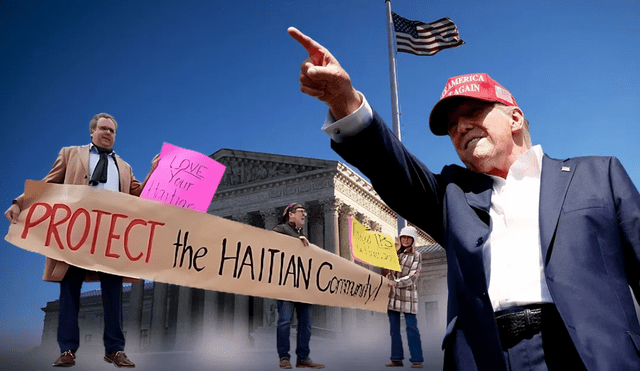Supreme Court allows Trump to end humanitarian protections for over 500,000 migrants
Ruling affects migrants from Cuba, Haiti, Nicaragua, and Venezuela; TPS for 350,000 Venezuelans also at risk.

The U.S. Supreme Court has authorized former President Donald Trump’s administration to wind down humanitarian parole programs that allowed over 500,000 migrants from Cuba, Haiti, Nicaragua, and Venezuela to live lawfully in the United States. The order, issued after an emergency appeal, dissolved a lower court’s injunction blocking their termination, pending a ruling in the ongoing cases against ending these programs.
Additionally, the Court’s order allows the end of Temporary Protected Status (TPS) for about 350,000 Venezuelans, raising the total number of individuals facing deportations to over 850,000. Although the Court’s decision does not settle the case entirely, it gives the Department of Homeland Security the power to end these protections without having to consider each case individually.
Vulnerable migrants face possible deportation
This includes migrants who are in the U.S. legally from 2022 through 2024 because they entered through humanitarian parole programs, which allowed for entry via air and with a financial sponsor. The humanitarian parole program provided temporary entry into the U.S. for two years for individuals fleeing atrocious violence, instability, or extreme poverty from their home country.
The Court's ruling will impact TPS recipients, including 350,000 Venezuelans whose status will be revoked and another 250,000 whose additional protections will expire by September. The Trump administration also revoked the use of the CBP One app that allowed over 900,000 people to obtain asylum appointments during the Biden administration. Many people have already received notices to leave the country.
Legal status in limbo as case returns to lower court
The Supreme Court's decision remands the case back to the First Circuit Court of Appeals in Boston for further proceedings. Justice Ketanji Brown Jackson, writing in dissent and joined by Justice Sonia Sotomayor, stated that this decision could “upend the lives of half a million people before their legal claims are properly adjudicated.”
TPS was created by Congress in 1990 and permits nationals from countries with armed conflict or natural disasters to live and work legally in the U.S., for a limited period of time. Although TPS was extended during the Biden administration, critics argue that TPS protections have grown too automatic. Today's ruling affirms that the executive branch does have the power to withdraw protections for a group of individuals based solely on a policy decision.













